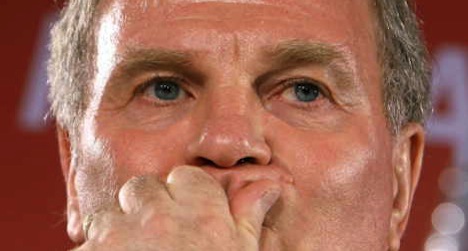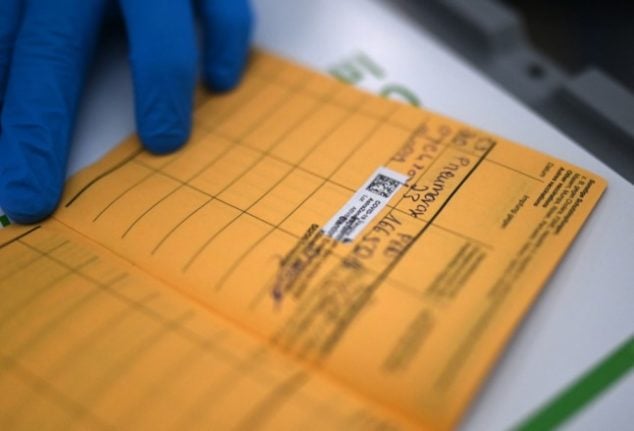"Many people in Germany are now disappointed in Uli Hoeness," said Merkel's spokesman Steffen Seibert about the football club chief.
"The chancellor is among these people."
While Merkel had respect for the achievements of Hoeness, including in an ethnic minority integration project they had worked on, the scandal over his turning himself in to tax authorities was a "sad facet," he said.
The 61-year-old football legend voluntarily disclosed a Swiss bank account in January and was working closely with investigators on a tax evasion probe, he was quoted as telling Focus news weekly at the weekend.
Hoeness, a folksy Bavarian, was a national side player in the 1970s and is a well-known personality who once survived a plane crash.
He is beloved by many football fans for overseeing Bayern Munich's rise to become the country's most successful club and a global brand.
In comments in Sport Bild newspaper, Hoeness insisted he had no plans to step down, while his club and much of the football world closed ranks, staying quiet or voicing support.
At a Bayern Munich press conference, journalists were told that the event would be immediately scrapped if anyone asked about the tax issue.
Among the few football figures to speak, former national captain Rudi Voeller said he was "a little shocked" about the news but would not comment further for now, also praising Hoeness as "a great human being."
Hoeness himself reportedly said he would "let a few weeks pass" before speaking but also took a combative stance, threatening legal action against some media.
"I am legally defending myself against some of the excesses in the coverage," he reportedly told the daily Muenchner Merkur, adding that for one unnamed paper "it will get really expensive."
Both he and prosecutors have declined to divulge the sums involved in the alleged tax dodge.
The newspaper Bild am Sonntag reported without citing sources that Hoeness had already paid nearly six million euros ($7.8 million) in back taxes.
The Sueddeutsche Zeitung daily reported on Monday that Hoeness had repaid three million euros in taxes and interest.
It said the alleged charge was that he had failed to pay capital earnings tax on his wealth, much of which came from stock market trading.
Hoeness, who also draws income from a successful sausage company, told Focus he had originally planned to come forward after an expected German-Swiss tax accord came into effect, which would have allowed him to settle the matter anonymously with a one-off payment.
But Germany's centre-left opposition — which will seek to dethrone Merkel in a September election — torpedoed the measure late last year on the grounds that it unfairly offered criminal amnesty to tax dodgers.
The football manager had in the past complained about high German taxes, once telling a TV talkshow that "our footballers play the first half for the tax office" while insisting that "I know it's stupid, but I pay all my taxes."
Politicians of all stripes have seized on the case at a time when tax havens are a hot topic in Germany.
In the recent international bailout-out for Cyprus, much media attention focused on the island's role as a tax haven for Russian oligarchs.
German investigators have also launched repeated mass raids against alleged tax cheats based on data-packed CDs on German customers of Swiss banks.
The Sueddeutsche Zeitung called Hoeness a "retired idol," while the Nuernberger Nachrichten spoke of "the fall of a moral apostle."
A Sunday night talk show that dealt with the story on ARD public television had a record viewership of 6.7 million.
Merkel's top challenger Peer Steinbrueck said earlier Hoeness "should be treated as normal in a state of law . . . he should not gain an advantage because he is a celebrity, nor should he be disadvantaged because he is a celebrity."



 Please whitelist us to continue reading.
Please whitelist us to continue reading.
Member comments